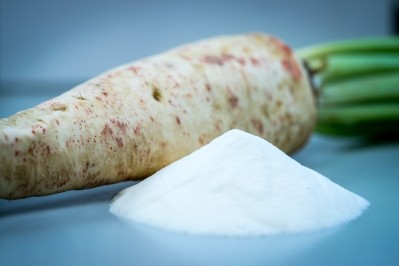Hops-derived compound curtails gut microbe associated with metabolic syndrome

Beer drinkers may find relief in knowing that a compound derived from hops reduces the amount of gut bacterium affiliated with metabolic syndrome, but don’t grab a cold one for gut health just yet.
According to findings published in Microbiome, Oregon State University researchers have shown that tetrahydroxanthohumol (TXN), a derivative of xanthohumol (XN), a chemical found in hops, can reduce the population of Oscillibacter species within the gut microbiome that promote inflammation when exposed to a high-fat diet.
When mice were given TXN, they didn’t gain as much weight as the mice that were eating a high fat diet alone.
“So, can I drink beer and lose weight? That’s not going to happen because the amount of the compound is too low in the beer to have a beneficial effect. What we’re giving to these animals is much higher,” said Adrian Gombart, an author on the study.
Composition of microbiota
To determine the effects of TXN, the researchers gave mice either a low fat diet, a high fat diet, a high fat diet plus XN, or a high fat diet plus TXN.
The researchers collected fecal samples from the mice and then also analyzed gene expression in the different tissues including adipose tissue, the liver, the small intestine, and the ileum, which is part of the digestive tract. They also sequenced the composition of the microbiota.
These large data sets were then used in a transkingdom network analysis, which can generate gene expression data for the treatment groups. The scientists were able to determine the changes in expression for all the different genes that were denoted in those tissues. Then they were able to make connections to the microbiome.
“We already had evidence that these compounds were affecting inflammation, but we saw quite a reduction in inflammation in the adipose tissue,” Gombart said. “That means genes that are associated with inflammation were being reduced by treatment.”
Activating macrophages
Inflammatory related genes were the major genes in flux. These are genes that are typically expressed by macrophages in different tissues, including adipose tissue, he added.
Macrophage cells are large cells that are part of the immune system. Glucose metabolism, the body’s ability to convert the sugar into fuel, generally suffers impairment as someone becomes obese, which in turn can lead to the person becoming more overweight. Faulty glucose metabolism also negatively affects brain physiology and is at the root of multiple medical conditions including diabetes and heart disease, the researchers said.
“Turns out these microbes produce compounds that can activate macrophages and cause inflammation, so reducing those levels could be really important in reducing inflammation,” Gombart said.
Referring to a previous study, he said, “these are some of the same microbes that were elevated by feeding a western diet to mice. And [the researchers] identified these as the microbes that were driving the inflammation and the development of metabolic syndrome in those animals.”
Abdominal obesity, high blood pressure, high blood sugar, low levels of “good” cholesterol, and high levels of triglycerides are some of the hallmarks of metabolic syndrome. An estimated 35% of the population suffers from it.
Gombart added, “what we're seeing here is we can alleviate metabolic syndrome conditions in these mice with the treatment.”
However, what does this mean for people? The OSU study treated mice with high levels of the compounds, proportionately higher than what people get in their diet and higher than what is found in extracts being marketed. Safety studies still need to be conducted for that population, Gombart said.
XN is a polyphenol, a type of abundant organic compound existing in plants and used for millennia by practitioners of traditional medicine. XN is one of the flavonoids, natural products found in fruits, vegetables, grains, bark, roots, stems, flowers, tea and wine that are well known for their positive effects on health, the researchers said.
Source: Microbiome
doi: 10.1186/s40168-023-01637-4
“Reducing gut microbiome-driven adipose tissue inflammation alleviates metabolic syndrome”
Authors: N. K. Newman, et al.














